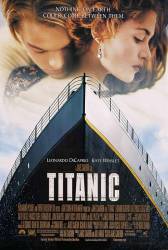
Question: How did rats manage to get on board?
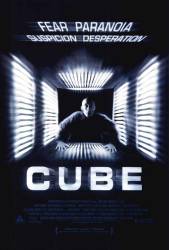
Question: How did Quentin find others in the last scene? he was left unconscious and he had no way to figure out where others went after that (considering his lack of knowledge in mathematics) so how could he possibly make his way to the bridge room?
Answer: It's established that sound travels throughout the structure reasonably well. Also, they didn't travel relatively far, even with the rooms shifting.
Actually, considering the distance that they travelled and the injuries he sustained, Quentin would have had extreme difficulty catching up. It looks like the 3 travelled upwards at least 12 cubes, meaning Quentin would have had to climb up each one with the chance that any of the rooms could be trapped fast enough to catch up to them with enough strength left over to kill Leaven.
Adrenaline is an extremely driving force, so I'd still consider it entirely possible it happened that way.
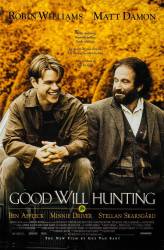
Question: There is a scene where they're all sitting, laughing, telling jokes etc. When Minnie Driver tells a joke - for the love of me I couldn't hear it, and I never got to see it again - could someone tell the joke and explain the punchline?
Answer: There are two versions of the joke actually. The original which is found on the DVD and then the made for TV joke. I don't remember how that one goes and it doesn't seem to appear on the DVD I've got, but the original joke is: All right, there's an old couple in bed, Mary and Paddie. They wake up on the morning of their 50th anniversary. Mary looks over and gazes adoringly at Paddie. She's like, "Oh, Jesus, Paddie. You're such a good-looking feller. I love ya. I want to give ya a little present. Anything your little heart desires, I'm goin' to give it to ya. What would you like?" Paddie's like, "Oh, gee, Mary. That's a very sweet offer. Now, in 50 years, there's one thing that's been missing, and, uh, I would like you to give me a blow job. I would like for it." Mary's like, "All right." She takes her teeth out, puts 'em in the glass. She gives him a blow job. Afterwards, Paddie's like, "yeah, geez, now that's what I've been missin'. That was the most beautiful, earth-shattering thing ever! Beautiful, Mary! I love ya! Is there anything that I can do for you?" Mary looks up to him and she goes, [Skylar takes a swig of her drink] "Give us a kiss." [And her drink comes out of her mouth, indicating what would be coming out of Mary's mouth in the joke].
Even funnier is she has to have a Guinness or a stout so what comes out of her mouth is really dark.
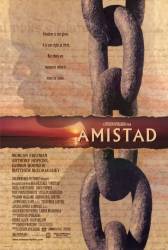
Question: In the last scene of the film the ship appeared to me to be sailing in a westerly direction (sun sets in the west). Wouldn't the ship need to go east from USA to sail to Sierra Leone?
Chosen answer: It's likely that the scene was set in the morning, meaning they would be going east.
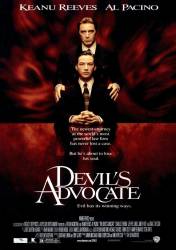
Question: During jury selection, Kevin decides to have one of the jury dismissed, I believe, because of the shoes the jury member wore. What exactly do the guy's shoes have to do with anything?
Answer: The shoes showed him this man polishes them every day, also his clothes are custom made. That all means the look he has of a black thug is deceiving, instead he's a cautious, proud person they can't use in the jury. Just to add, Kevin knows all this because the devil (his father, spoiler alert) is giving him the talent to do it, not a logical explanation can be given why he dismisses these people.
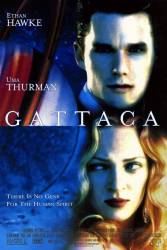
Question: In the scene where Vincent is just about to launch, the doctor testing him mentions his son. My brother seems to think that the doctor knows Vincent is not who he pretends to be because he is Jerome Morrow's father. Is there any evidence for this?
Answer: None whatsoever. The doctor seems to have worked out that Vincent is not who he seems to be from simple observational evidence. It's because of his son that he feels sympathy for Vincent and hasn't revealed that he's tricking the system.
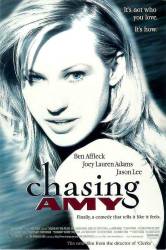
Question: I've noticed that throughout the movie, the first two fingers on many character's right hand are orange. Most noticeable when Holden sees Banky at the end and in the lesbian bar when Banky is swapping stories with Alyssa. What's the significance of this?
Answer: I'm gonna be totally honest... I'm 99% sure there's no significance. In fact, I think it's just stained skin from all the smoking people do in the movie. Most people hold their cigarettes between their first two fingers. And most of the characters are depicted smoking throughout the film, which means they had to smoke a LOT during filming to maintain continuity. I used to get occasional orange (and sometimes yellow or light brown) stains on my fingers and hands when I smoked cigarettes. Especially if I smoked more than one in a short period of time and didn't wash me hands between them. So it's probably just smoking stains on the actor's fingers. In fact, I looked, and you see Banky holding a lit cigarette in his right hand and smoking during the story swapping scene you mentioned, with gives some direct evidence to my theory. (For reference, those stains can wash off with some good scrubbing).
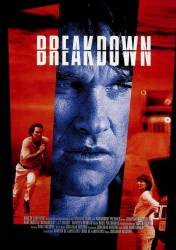
Question: When Kurt Russell gets pulled over by the sheriff, the sheriff gets shot and begins to radio dispatch. Dispatch then asks the sheriff what his 20 (location) is. Kurt Russell grabs the radio and also does not tell dispatch where they were, but dispatch says they are on the way. How can they be on the way if they don't know his location?
Answer: There's only one major road in and out of the town. They knew where the Sheriff was coming from (Red called in an accident out of town to get the Sheriff out of their hair). If they start driving along the road the Sheriff took to get back to town eventually they'll find him.
Answer: Jeff (Russell) may have thought that the sheriff already called in a location explaining why he didn't include it. He was not by the sheriff at the time the sheriff made the radio call - he ran up to him shortly afterwards.
Answer: There would be a tracker in the radio to let dispatch know exactly where the officer is.
GPS? RF frequency? No tracking on walkie-talkies in 1997.
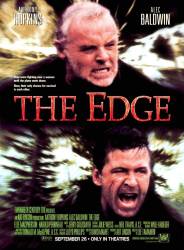
Question: To find south why not look at the sun. East to West?
Answer: That would only work when the sun is visible. In Alaska there are frequent rainy and overcast days where the sun is completely blocked by heavy clouds, making a precise directional determination difficult, if not impossible.
They could see the sun; it was a sunny day after the crash, and the next day they were able to see the North Star. To begin with, they had great visibility, and it seemed easy enough to find a mountain peak or pass to use as a quick reference.
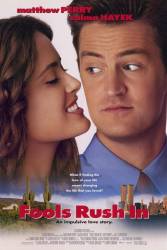
Question: Could you please tell me what the father is calling guacamole in the scene where Alex and Isabelle's parents meet? Alex's father says something about guacamole, and Isabelle's father says, "Now you insult (?) guacamole". I can't find what he says anywhere. Thank you.
Answer: "Now you're offending Amalia's guacamole! What's wrong with Amalia's guacamole?!"
I believe it says Mayan's guacamole. Not Amalia's.
No, Tomas says Amalia. Amalia is his wife.
Answer: Amalia is her mother... so yes he says Amalia.

Question: I'm asking this because I don't really know a lot about volcanoes but, at the beginning of the movie, Harry was in the middle of a volcano eruption with: rain; rocks falling etc. When the volcano in Dante's Peak erupted, it was different from before, meaning that there was no rain (but ash), rivers strong enough to break a dam, burning water, dead wildlife etc. Even at the end of the movie, the volcano still had one more eruption before it finally died down. My question is, are all volcano eruptions not the same or are they just unpredictable when they explode? It just seems kind of odd that Harry was experiencing different things in nature after the volcano exploded. I hope I explained this enough; I'm just curious is all.
Answer: Volcanic eruptions can range from ash eruption to hot gas eruption to lava eruption to explosive eruption. Movies tend to inaccurately lump all of these eruptions together.
Answer: Volcanoes can differ because of type of volcano, type of eruption, and region. The Pacific Northwest has a history of volcanoes that erupt not lava, but rock, gas, and ash. Other regions (like Hawaii and Central Africa) erupt primarily lava. Age of the volcano is also a factor.
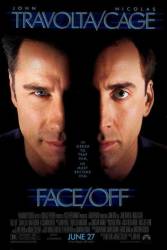
Question: Why did Castor shoot Dietrich? They were on the same side.
Chosen answer: Although they were on the same side, Troy is currently posing as Archer, which means he would have to do everything that the FBI would expect Archer to be doing. The whole point of the raid was to take out Archer, as well as Troy's gang. He would have rather risked killing part of his own gang than risk exposing his identity to anyone else.
That doesn't really make sense. In the scene, he goes out of his way to shoot him and smiles while doing so, carefully and slowly. Was not a collateral damage situation. The question is why he deliberately goes out of his way to kill him.
Answer: If you watch closely, he saw Archer, went out of his way not to shoot him, instead was aiming for his own son that he didn't know was his, to further traumatize Archer.
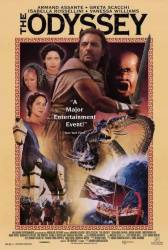
Question: At the beginning of the movie, when the men are boarding the ship, a line of sailors are marching single file, nodding their heads up and down and chanting "Ahh-ah, ah-ooh" repeatedly. What are they doing this for?
Answer: It's a marching chant, sort of like an ancient version of the marching music we have now.
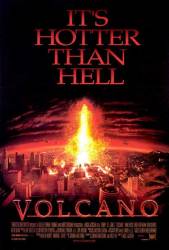
Question: Does the art museum catch fire from the lava even though they tried to stop it by putting a bus against it?
Answer: Lava is extremely hot. It heats the air above and around it to such a degree that it can reach the flash point of various items.
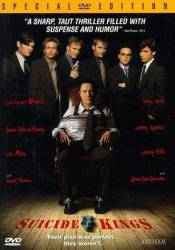
Question: Much ado is made near the start of the film about the kidnappers sending Elise's finger back to her family as a threat, but we learn later that she was never harmed. Did the film ever explain where the finger actually came from, or if it was even sent at all?
Answer: The finger is never shown, only mentioned. Since Elise looked to have all her fingers one must assume it was made up as part of the scheme to fool everyone.
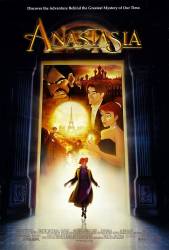
Question: Anastasia basically lost most of her memories from hitting her head, as well as the possible trauma of what happened to her the night her family was killed. Could someone really lose most of their memories that way?
Answer: Amnesia exists, but it is a temporary condition. It does not last for the long-term and people usually regain their memory in a day or two, sometimes up to a week. Extreme cases can last longer, but not in the way it is depicted in movies. Some people may lose memories due to severe brain damage from a traumatic injury, but that is permanent.
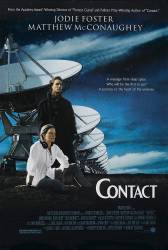
Question: If you read the book version of Contact you know that the stuff about transcendental numbers and the Artist's Signature was left out of the movie. This makes no sense to me, since it's not only the real ending, it's the whole POINT of the story. Without this information, the story's fundamental question (does God exist?) is not answered in the movie. Does anyone know why this was left out?
Answer: If anything, I think the film's producers deliberately left godly topics unaddressed (and questions dangling, unanswered) because they didn't want to alienate any particular audience. However, we know the producers of "Contact" certainly did vilify religion through the sinister scenes with Joseph, the evangelical extremist. At the same time, the film created empathy for the president's glib theological adviser, Palmer Joss. So, I don't think the film was shying away from religious topics, and I think it was pretty fair to the religious viewpoint, for the most part. But this movie wasn't about religion; it was about a primitive, materialistic, self-centered and aggressive species (humanity) reluctantly acknowledging the existence of vastly more intelligent and even godlike entities throughout the cosmos. Even the first-contact entities, advanced as they are, acknowledge other entities much more ancient and much more advanced (the virtual architects of the space/time conduit). The implication was that we live in a universe that may be populated with many intelligent entities that answer every human criteria of godhood. Ellie's narrow-minded atheism was surely shaken to its foundation by her experience; and, while she didn't "convert" to archaic earthly religions, she was spiritually a different person upon her return. The film, however, is open-ended and fence-straddling and doesn't presume to definitively answer the question of the existence of god, leaving it up to the audience to decide.
Answer: The film chooses to focus on Ellie's personal journey and how she deals with and comes to terms with what happens - it doesn't really involve God at all, other than the inclusion of Palmer Joss as a religious advocate, choosing to restrict itself to the much less theologically controversial theme of a straight first contact scenario, without the religious overtones. Given the depth of feeling on religious matters in the US, it's hardly surprising that the filmmakers preferred to leave this particular hot topic out. While Carl Sagan died during production of the film, he both co-produced and was involved in the story process, so he was clearly not concerned about this change.
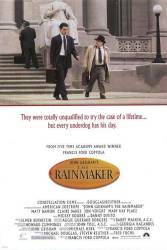
Question: Why is Danny Glover as judge Tyrone Kipler not credited?
Answer: I don't know how prevalent this is (or how it actually works), but one possibility would be that he was under contract with a particular agency (or company/ business) and could only receive credit for work performed under this contract and/or no other agency could benefit from using him. His name cannot show up in something he did outside of that contract.
Chosen answer: I don't know why, but he asked not to be in the credits.
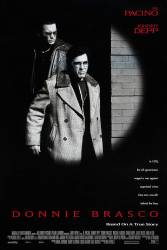
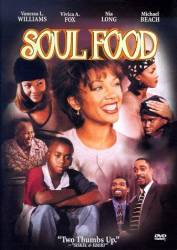
Chosen answer: During the several years it took to construct the ship probably, or in any of the supplies/food brought on board, or in the furniture brought on board. A single pregnant female rat can be responsible for thousands of rats in a very short space of time (the offspring are not too choosy about who they breed with).
Soylent Purple
A pregnant female rat could have made a home in a underneath a third class couch and had the other rats then all the females would have baby rats quickly.